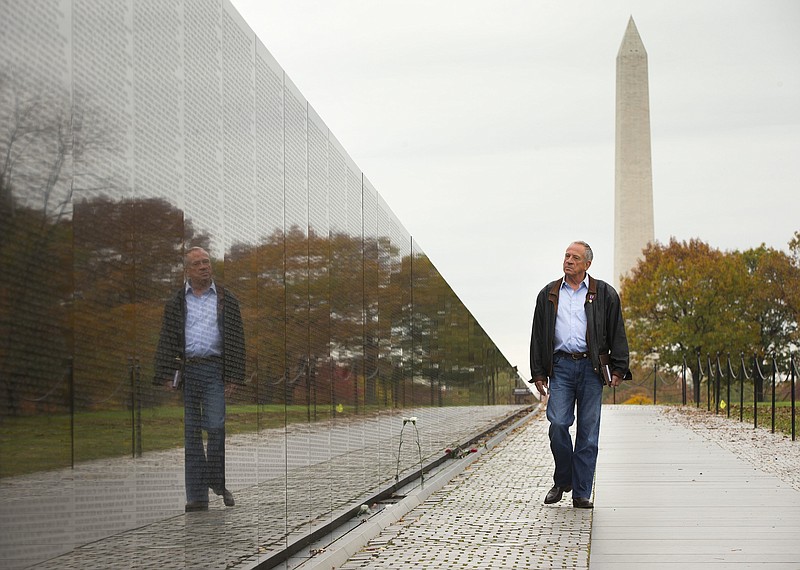Read more
* Patriotism at fever pitch for first Veterans Day since July 16 attacks * Cooper: Veterans Day -- what Lincoln can see * Area businesses offer specials, free meals for veterans
Today is Veterans Day, and the 97th anniversary of the end of WWI.
What we now know as Veterans Day originated as Armistice Day in 1919 when President Woodrow Wilson proclaimed it to commemorate the fighting that ceased between the Allied nations and Germany at the 11th hour of the 11th day of the 11th month to end "the war to end all wars."
Since it turned out not to be that war-ending war, President Dwight D. Eisenhower renamed it Veterans Day as a way to honor those who served in all American wars.
These days, there are about 19.3 living military veterans in the United States, including about 1.6 million female veterans, according to the U.S. Census Bureau.
Our U.S. Senate, known best as the smoother-running half of our dysfunctional Congress, on Veterans Day eve Tuesday passed a popular $80 billion bill for veterans' programs and construction projects on military bases - projects and programs long delayed by political food fights over the broader budget.
The Associated Press reports that the 93-0 vote will send the measure to House-Senate negotiators where it is likely to become a vehicle for a $1.1 trillion catchall measure to include 11 other spending bills to make up about a third of the budget.
The veterans bill exceeds President Barack Obama's request by $1 billion "after getting a $2 billion influx of money" from a bipartisan budget agreement, the AP reported.
Altogether, the programs covered would get $8 billion more than current levels, bringing the Veterans Administration's budget for medical services to $51 billion to cover their treatment and care. It includes funding to hire 770 additional VA claims processors to ease a claims backlog.
All of this is good news, but not a done deal, of course. Passing something for veterans was the easy part of the budget, as annual veterans and military construction is almost always the most popular of the 12 annual appropriations bills considered. Tougher votes will follow as policy "riders" sought by Republicans get piled onto the omnibus spending bills.
Nothing is simple in Washington.
Nor in life. Just as the war to end all wars didn't end them, most of us now know this newfangled war of terrorism is equally hard to end. Ask Jan Scruggs, the Vietnam vet who in late 1970s muscled up $8.4 million in donations and the legislation needed to build the Vietnam Veterans Memorial in Washington. Scruggs says it's now time such a wall be built for post-9/11 combat veterans, even though service members are still dying in Iraq and Afghanistan.
This time he'll not only have to lobby to build a new monument, he'll also have to rally Congress to overturn the 1986 Commemorative Works Act, which stipulates work cannot begin on a new war memorial until 10 years after the war ends - an idea meant to allow time for history to judge a conflict's significance, but one now quaintly out of step with today's wars that have no clear-cut endings.
Meanwhile, out in America's suburbs and farmlands, veterans continue to live out their lives - some simple, some not so simple.
Veterans on average have higher incomes than non-veterans. Veterans on average are more likely to vote than other Americans. Veterans also often have special needs that most of us can't dream of.
Of the whole 19.3 million living veterans, 9.4 million are retired, while 7.4 million are still in the workforce (7 million were employed in 2014), according to the Census Bureau. Additionally, 3.8 million last year had service-connected disability ratings.
We honor each and every one of them.
